
Ongwediva: The Heartbeat of Northern Namibia
Ongwediva, nestled in the northern part of Namibia, offers an authentic and enriching experience for travelers. Known for its warm and welcoming community, the town is a blend of tradition and modernity. As you explore, you'll discover a region rich in culture and history, with plenty of sights and activities that showcase the unique Namibian lifestyle. At the center of Ongwediva lies the vibrant market, a hub of activity where you can immerse yourself in local flavors, crafts, and textiles. The market is a great place to interact with local vendors and witness the everyday life of Ongwediva's residents. From fresh produce to handmade goods, the market offers a colorful display of the region's bounty. Another highlight is the Ongwediva Annual Trade Fair, held every August. This event attracts visitors from all over Namibia and beyond. It showcases local businesses, cultural performances, and innovative projects, making it a must-see for anyone visiting during this period. For nature enthusiasts, the nearby Etosha National Park is a short drive away. This world-renowned park offers an incredible opportunity to see some of Africa's most iconic wildlife. From elephants to lions, Etosha provides a thrilling safari experience that complements your visit to Ongwediva. Ongwediva is also home to several educational institutions and healthcare facilities, reflecting its growing importance as a regional center. The town's infrastructure is well-developed, ensuring a comfortable stay for visitors. Whether you're here for business or leisure, Ongwediva promises a memorable and fulfilling experience.
Local tips in Ongwediva
- Visit during the Ongwediva Annual Trade Fair in August for a unique cultural experience.
- Explore the local market early in the morning for the freshest produce and best deals.
- Consider renting a car for easy access to nearby attractions like Etosha National Park.
- Engage with locals to learn about the rich cultural heritage of the region.
- Stay hydrated and wear sunscreen, as the Namibian sun can be intense.
Ongwediva: The Heartbeat of Northern Namibia
Ongwediva, nestled in the northern part of Namibia, offers an authentic and enriching experience for travelers. Known for its warm and welcoming community, the town is a blend of tradition and modernity. As you explore, you'll discover a region rich in culture and history, with plenty of sights and activities that showcase the unique Namibian lifestyle. At the center of Ongwediva lies the vibrant market, a hub of activity where you can immerse yourself in local flavors, crafts, and textiles. The market is a great place to interact with local vendors and witness the everyday life of Ongwediva's residents. From fresh produce to handmade goods, the market offers a colorful display of the region's bounty. Another highlight is the Ongwediva Annual Trade Fair, held every August. This event attracts visitors from all over Namibia and beyond. It showcases local businesses, cultural performances, and innovative projects, making it a must-see for anyone visiting during this period. For nature enthusiasts, the nearby Etosha National Park is a short drive away. This world-renowned park offers an incredible opportunity to see some of Africa's most iconic wildlife. From elephants to lions, Etosha provides a thrilling safari experience that complements your visit to Ongwediva. Ongwediva is also home to several educational institutions and healthcare facilities, reflecting its growing importance as a regional center. The town's infrastructure is well-developed, ensuring a comfortable stay for visitors. Whether you're here for business or leisure, Ongwediva promises a memorable and fulfilling experience.
When is the best time to go to Ongwediva?
Iconic landmarks you can’t miss
Oshana Mall
Experience shopping, dining, and entertainment like never before at Oshana Mall, the ultimate destination in Ongwediva, Namibia.
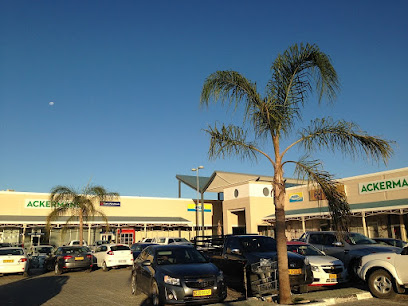
Hotel Destiny
Discover comfort and hospitality at Hotel Destiny in Ongwediva, a perfect haven for tourists exploring Namibia's vibrant culture.
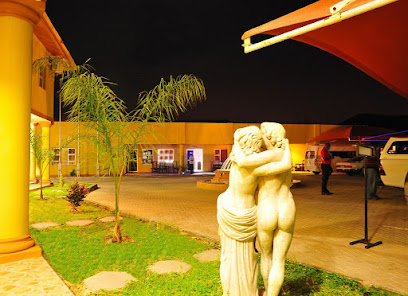
The Grand Pub Ongwediva
Discover the lively atmosphere and rich flavors at The Grand Pub Ongwediva, where local culture meets modern hospitality.
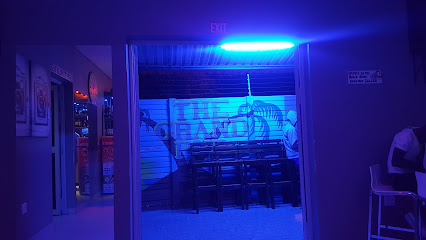
Bennies Entertainment Park & Lodge
Experience the perfect blend of adventure and relaxation at Bennies Entertainment Park & Lodge in Ongwediva, Namibia, ideal for families and nature lovers.
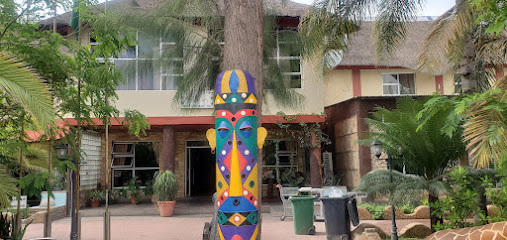
Mango Guesthouse
Experience the warmth of Namibian hospitality at Mango Guesthouse, your cozy retreat in Ongwediva, perfect for relaxation and local exploration.

Etuna Guesthouse
Discover the warmth of Namibian hospitality at Etuna Guesthouse, your serene retreat in Ongwediva, offering comfort and convenience for every traveler.
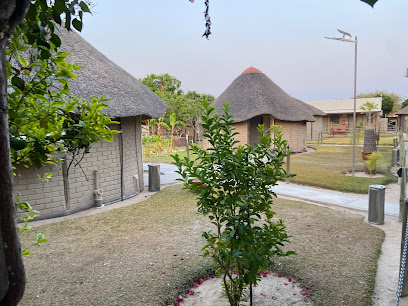
Ongwediva Annual Trade Fair
Discover the vibrant culture and commerce of Namibia at the Ongwediva Annual Trade Fair, a must-visit for every traveler.
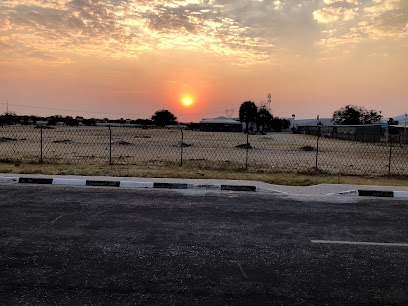
Epic Cinemas Ongwediva
Discover a world of cinematic wonders at Epic Cinemas Ongwediva, where entertainment meets comfort in the heart of Namibia.
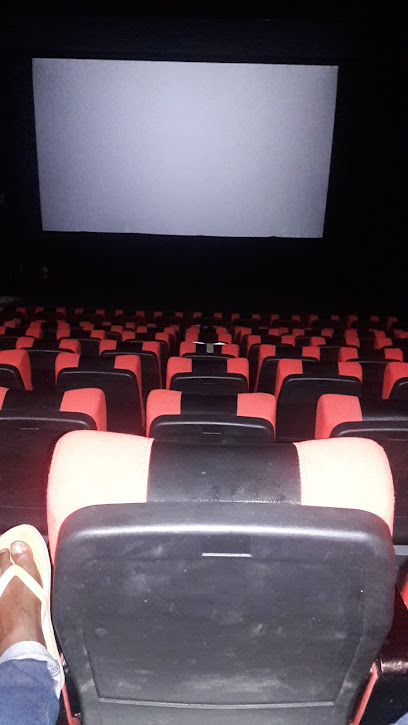
Baywatch View
Experience the vibrant nightlife of Ongwediva at Baywatch View, your go-to bar for a refreshing drink and a welcoming atmosphere.
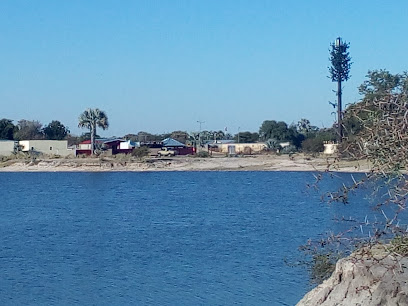
University of Namibia
Explore the University of Namibia: A vibrant hub of education and culture in Ongwediva, showcasing modern architecture and rich local traditions.
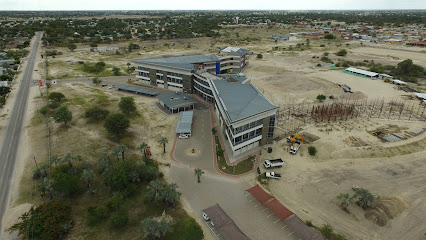
Africa Stadt Haus Hotel
Immerse yourself in the heart of Ongwediva at Africa Stadt Haus Hotel, where comfort meets local culture in a cozy bed and breakfast setting.

Ongwediva Town Council
Experience the vibrant culture and community spirit at Ongwediva Town Council, the heart of local governance in Namibia.
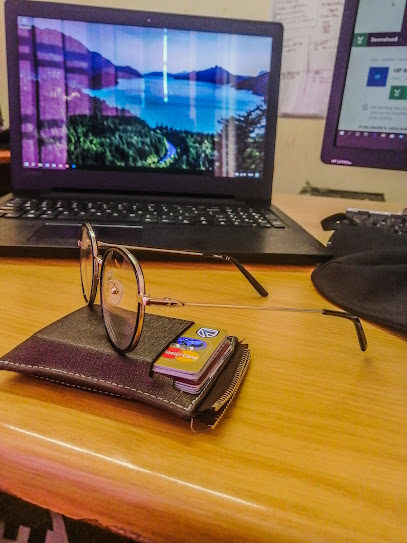
Nakambale Museum
Discover the vibrant culture of Namibia at Nakambale Museum, where the history of the Ovambo people comes alive through engaging exhibits and local stories.
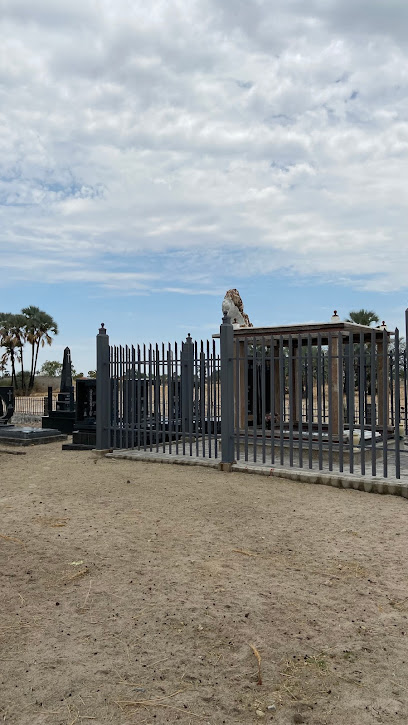
Bush Bar
Discover the vibrant atmosphere of Bush Bar in Ongwediva, where local culture meets refreshing drinks and lively entertainment.
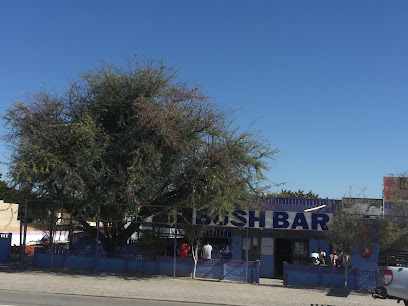
Valombola VTC
Discover the heart of education at Valombola VTC in Ongwediva, where learning meets community spirit and cultural richness.
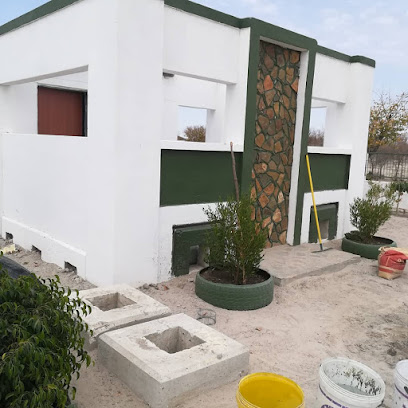
Unmissable attractions to see
Nakambale Museum
Explore the Nakambale Museum in Olukonda for an immersive journey into Namibia's cultural heritage and the traditions of the Ovambo people.
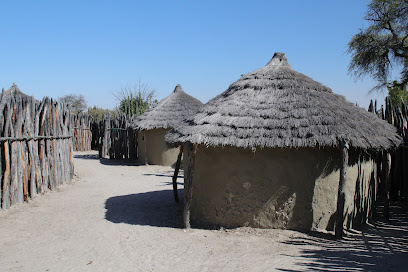
Khanoni Leisure park
Discover the excitement of Khanoni Leisure Park, an amusement park perfect for family fun and adventure in the heart of Namibia.
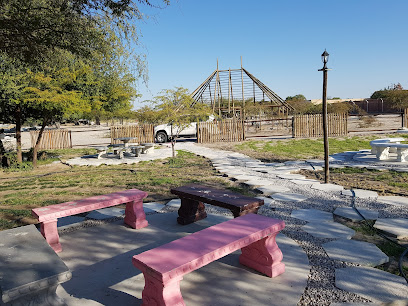
Bando Chill Spot
Experience the tranquility of Bando Chill Spot, a lush garden oasis in Oshakati perfect for relaxation and socializing amidst nature's beauty.
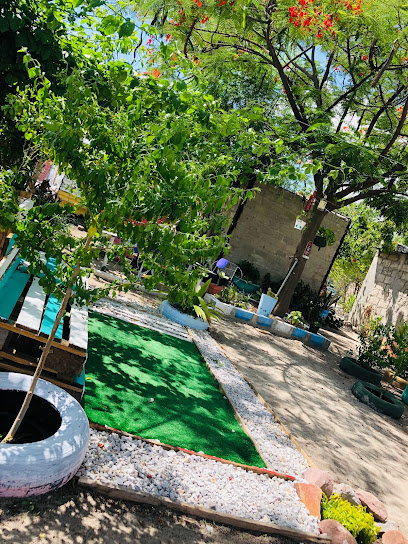
Onepungu Vilage
Explore Onepungu Village, a hidden gem in Namibia, where vibrant culture and stunning landscapes create an unforgettable travel experience.

Ovimbundu Tuvindele park
Discover the serene landscapes of Ovimbundu Tuvindele Park in Okatana, Namibia, a peaceful retreat for relaxation and nature exploration.
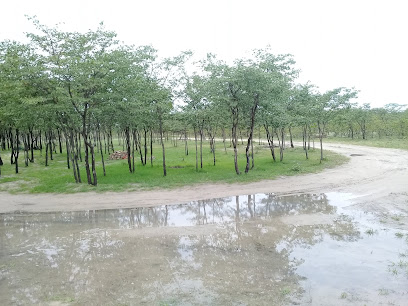
Jades Garden
Explore the natural beauty and tranquility of Jades Garden in Oshakati, a perfect park for relaxation and family outings amidst Namibia's vibrant flora.

Omake’s Place
Explore Omake's Place in Epyalyiipundu for a unique blend of cultural experiences and stunning Namibian landscapes.

Onepale Leisure Spot
Discover the beauty and tranquility of Onepale Leisure Spot in Oshakati, a serene tourist attraction perfect for relaxation and cultural experiences.

Essential places to dine
Silver Wolf Spur
Discover mouthwatering steaks and African flavors at Silver Wolf Spur in Ongwediva's Maroela Mall.
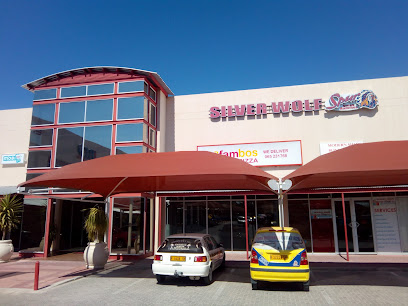
Hungry Lion Oshakati
Experience delicious fried chicken and fast food delights at Hungry Lion Oshakati – your go-to spot for tasty meals in Namibia.
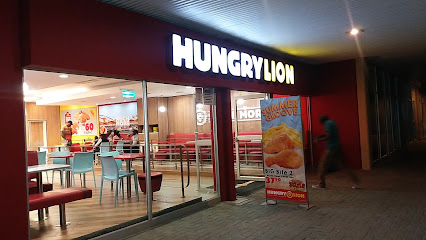
Barcelos
Experience delicious fast food at Barcelos in Ongwediva – where flavor meets convenience!
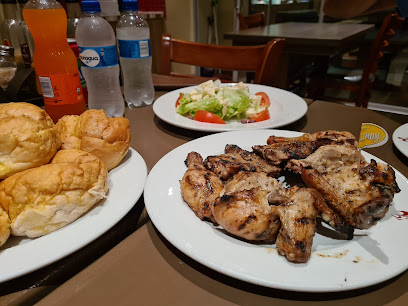
Tate Joe's
Experience delicious Namibian cuisine at Tate Joe's, where every dish tells a story of flavor and tradition in Ongwediva.
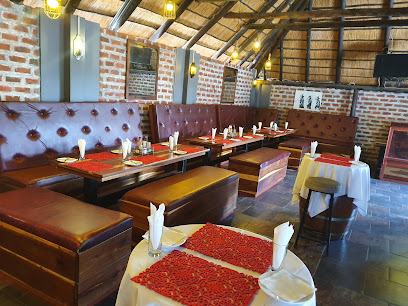
LG Bar & Restaurant
Savor delicious local cuisine at LG Bar & Restaurant in Oshakati - where Namibian flavors meet vibrant atmosphere.
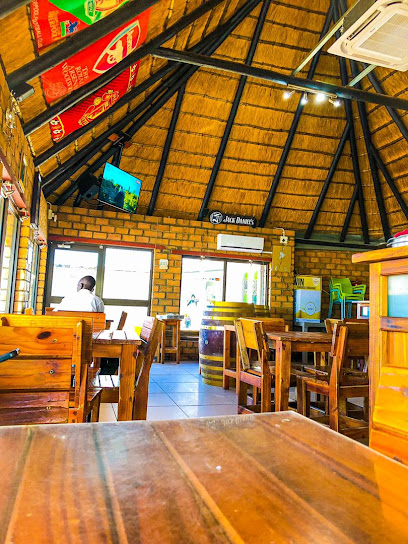
Captain DoRegos Ongwediva
Discover diverse flavors at Captain DoRegos Ongwediva - where Namibian cuisine meets international delights in a vibrant dining atmosphere.
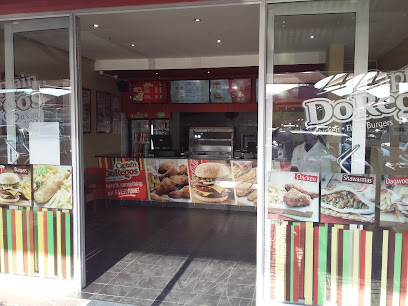
SOS CLUB OSHAKATI
Experience authentic Namibian cuisine at SOS Club Oshakati, where every meal tells a story in a vibrant atmosphere.
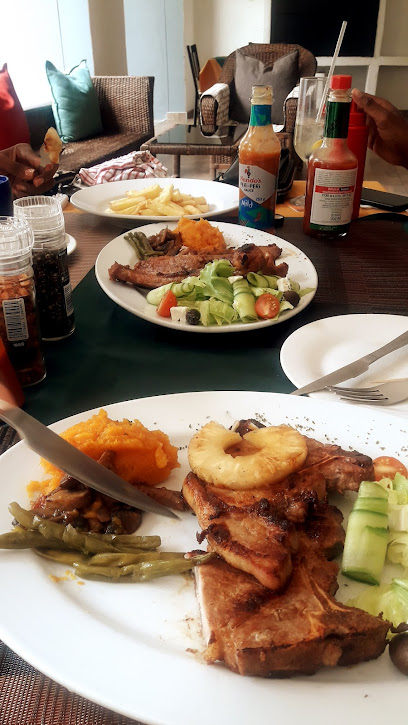
Sos Cljb, Oshakati & picasso pizzeria
Discover the culinary treasures of Namibia at Sos Cljb & Picasso Pizzeria in Oshakati, where local flavors meet international cuisine.
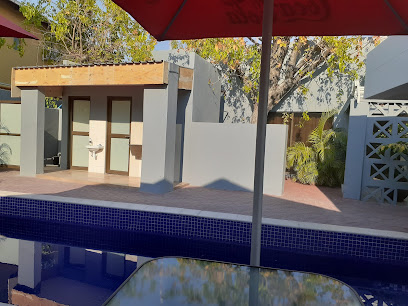
Hungry Lion Oshana Mall
Discover delicious fried chicken and fast food delights at Hungry Lion Oshana Mall - where flavor meets convenience in Ongwediva.

Onambango Depot
Experience the vibrant atmosphere at Onambango Depot – Oshakati's premier beer hall serving local brews and traditional snacks.
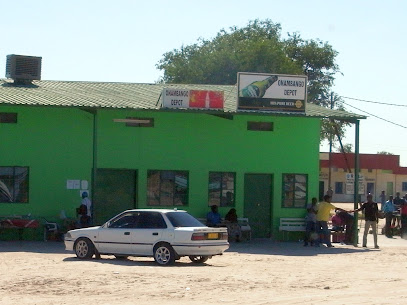
Belle's Pub&Restaurant
Experience the vibrant flavors of Namibia at Belle's Pub & Restaurant in Oshakati - where every meal is a celebration.
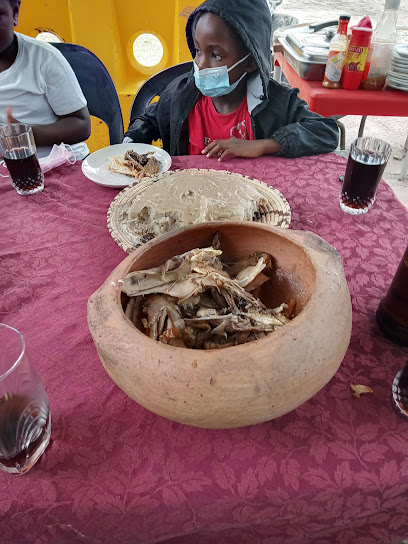
Primas Lounge and Cuisine
Experience the essence of Namibian cuisine at Primas Lounge and Cuisine in Ongwediva—where local flavors meet cozy ambiance.
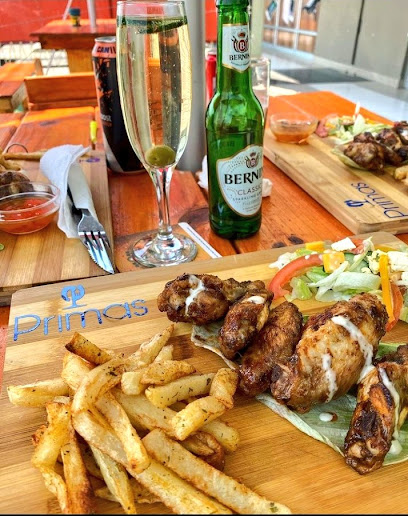
Coral Reef Restaurant
Experience authentic Namibian flavors at Coral Reef Restaurant in Ongwediva – where fresh seafood meets warm hospitality.
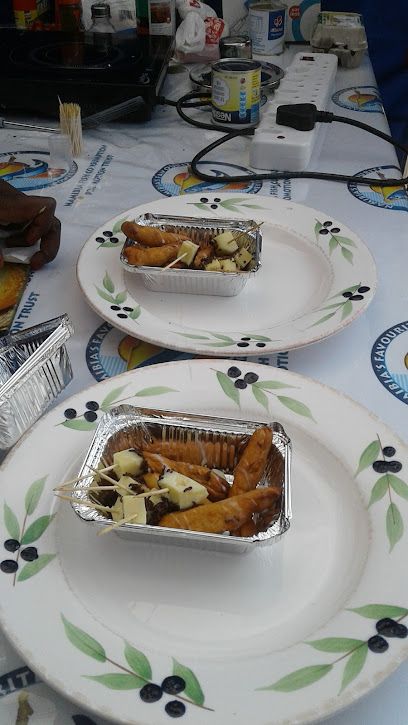
Debonairs Pizza
Experience the best of pizza at Debonairs Pizza in Oshana Mall - where flavor meets convenience!
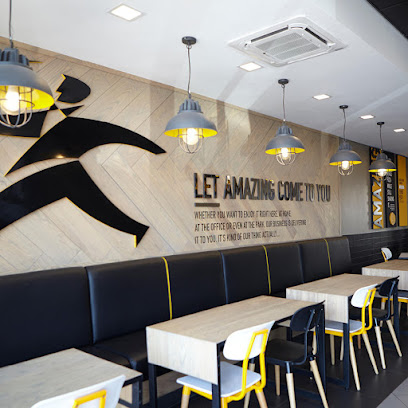
Nandigolo restaurant
Discover authentic Namibian cuisine at Nandigolo Restaurant in Oshakati - where flavor meets tradition.
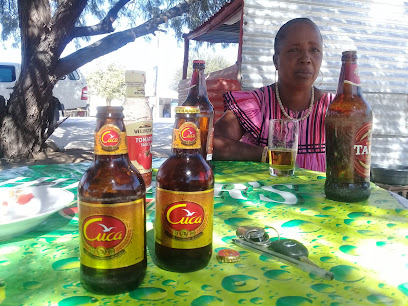
Markets, malls and hidden boutiques
Oshana Mall
Explore Oshana Mall in Ongwediva, Namibia - a vibrant outlet mall with diverse shops, dining, and local culture, perfect for tourists and shoppers alike.
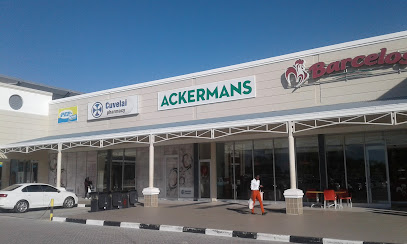
Pick n Pay
Explore Pick n Pay in Ongwediva for a local shopping experience offering fresh produce, unique Namibian products, and a wide selection of beverages.
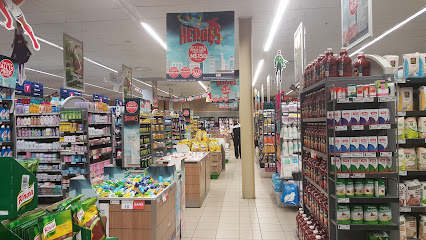
Choppies Supermarket Ongwediva
Discover local flavors and essential goods at Choppies Supermarket Ongwediva, a vibrant shopping hub for tourists and locals alike.
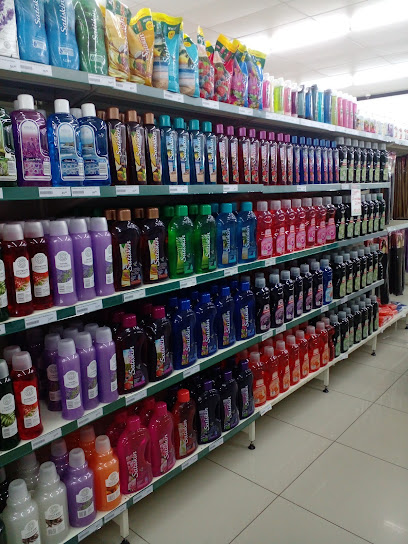
SPAR Ongwediva
Discover the local flavors and vibrant culture at SPAR Ongwediva, your go-to supermarket for fresh produce and Namibian delicacies.
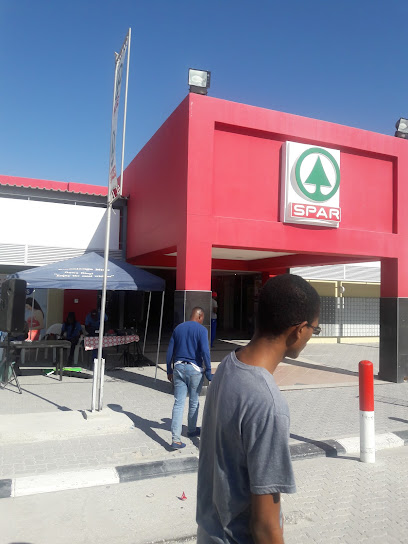
Chicco Mall
Explore Chicco Mall in Ongwediva: a shopping paradise with diverse stores, delightful dining options, and engaging entertainment for all ages.
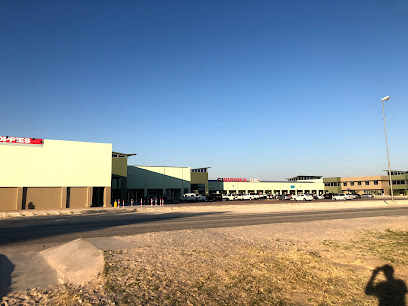
Ongwediva Mini Market
Discover the vibrant flavors of India at Ongwediva Mini Market, your go-to spot for authentic Indian groceries in Namibia.

Woermann Brock Ongwediva
Explore Woermann Brock Ongwediva for a unique shopping experience, where local culture and convenience meet in a vibrant grocery store.
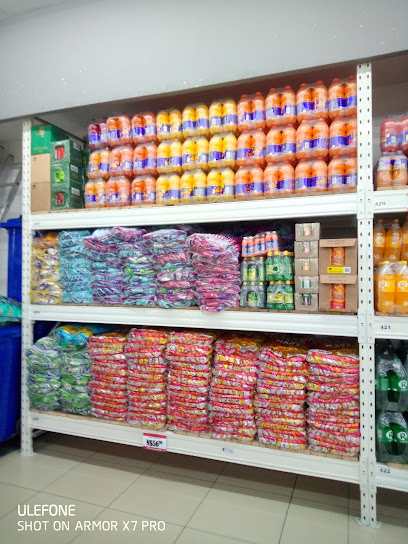
Shoprite Oshana Mall
Discover quality shopping at Shoprite Oshana Mall, Ongwediva's premier supermarket for groceries and household essentials.
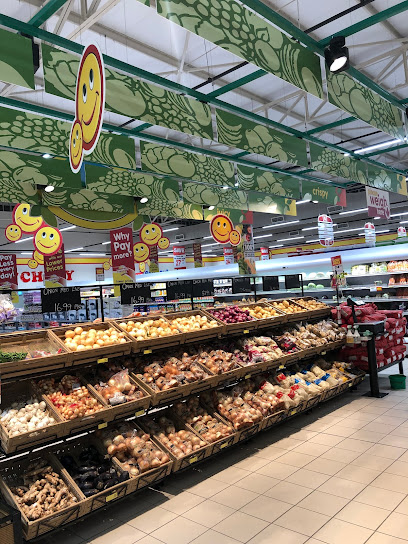
Rani's Mini market
Explore Ongwediva's Rani's Mini Market for a unique local shopping experience filled with Namibian flavors and everyday essentials.
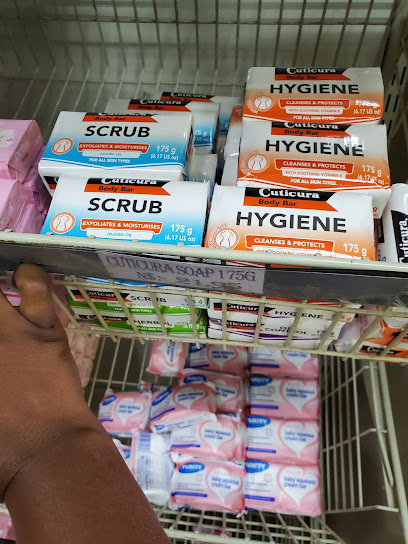
PEP Ongwediva Oshana Mall 2
Explore diverse clothing options for the whole family at PEP Ongwediva Oshana Mall, your one-stop shop for fashion in Namibia.
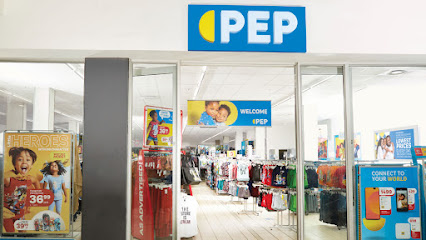
Neno Electronic Systems Game Shop
Discover the ultimate gaming experience at Neno Electronic Systems Game Shop in Ongwediva, where gaming dreams come to life.
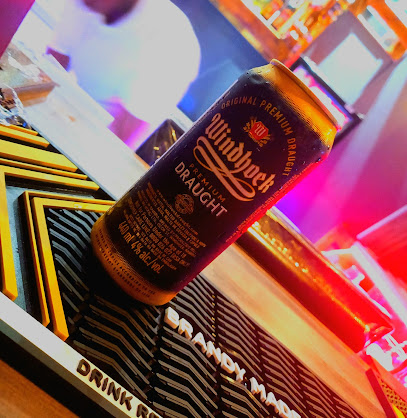
Ongwe mini market
Experience the authentic flavors of Namibia at Ongwe Mini Market, Ongwediva's vibrant supermarket filled with local delights and fresh produce.

The Crazy Store Ongwediva
Discover unique gifts, crafts, and toys at The Crazy Store Ongwediva—a shopping haven in Maroela Mall.
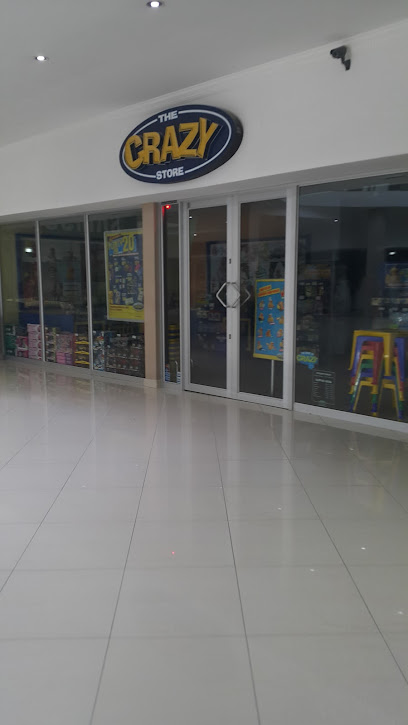
CHOPPIES
Explore Choppies Shopping Mall: A vibrant shopping hub in Ongwediva, perfect for tourists seeking a mix of retail therapy and local culture.
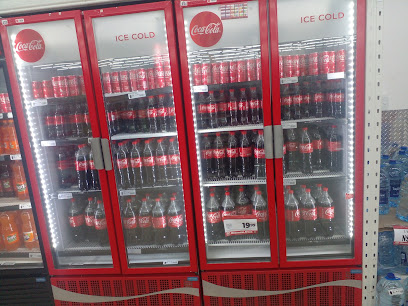
Mega Mart Ongwediva
Explore Mega Mart Ongwediva for fresh produce and local specialties in a vibrant grocery shopping experience.

Essential bars & hidden hideouts
The Grand Pub Ongwediva
Discover the lively spirit of Ongwediva at The Grand Pub, where locals gather for drinks, music, and unforgettable experiences.
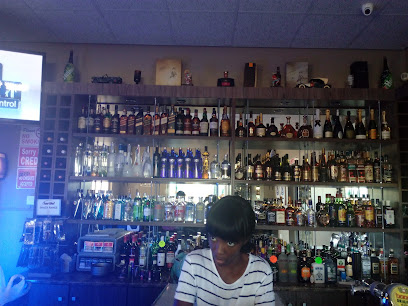
Parliament Ongwediva
Discover the laid-back charm of Parliament Ongwediva, the perfect bar for tourists to relax and enjoy local flavors in Ongwediva, Namibia.
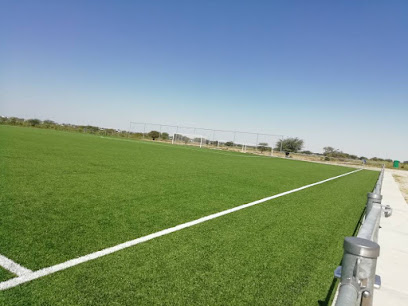
Baywatch View
Discover the vibrant atmosphere and affordable drinks at Baywatch View, Ongwediva's top bar for relaxation and socializing.
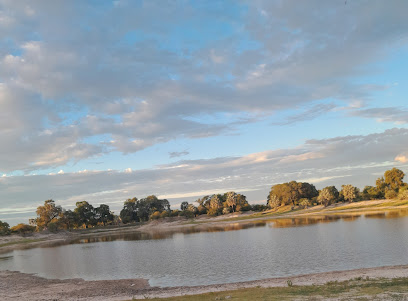
PRC Bar Ongwediva
Discover the lively atmosphere of PRC Bar Ongwediva, where local culture, music, and refreshing drinks come together for an unforgettable night out.
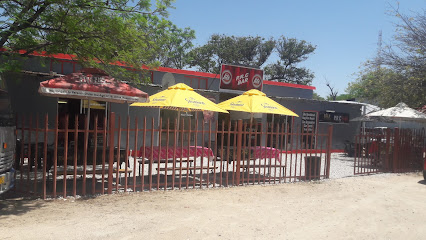
Tropicana Bar
Experience the vibrant atmosphere and local flavors at Tropicana Bar in Ongwediva, the perfect retreat for travelers seeking relaxation.
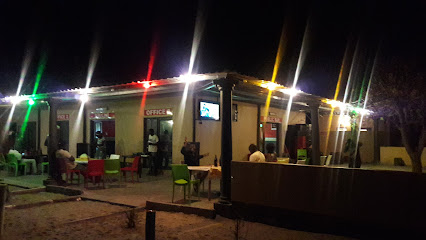
Elements Lifestyle
Discover the vibrant nightlife at Elements Lifestyle in Ongwediva, where delicious drinks and a lively atmosphere await.
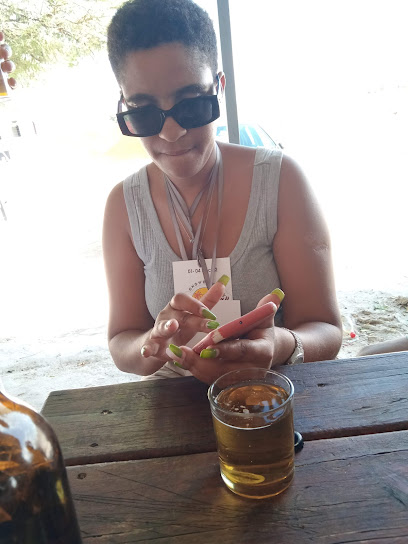
Bush Bar
Experience the vibrant atmosphere of Bush Bar in Ongwediva, where local flavors and friendly service meet for an unforgettable night out.
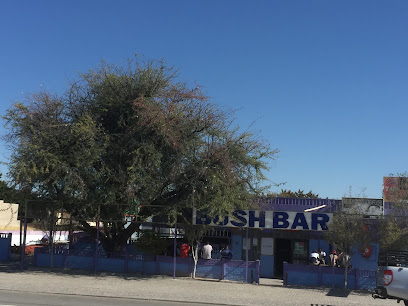
Xchange Lifestyle Lounge and Grill
Experience Ongwediva's nightlife at Xchange Lifestyle Lounge and Grill, where exquisite cuisine meets vibrant entertainment for an unforgettable evening.
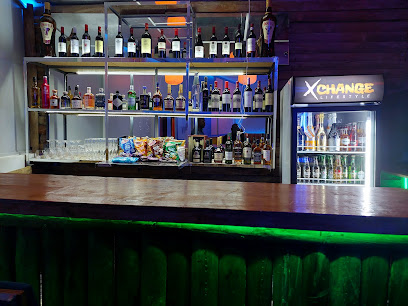
Trippy Lounge and Grill
Experience the vibrant atmosphere and local flavors at Trippy Lounge and Grill in Oshana, where delicious food and refreshing drinks await.
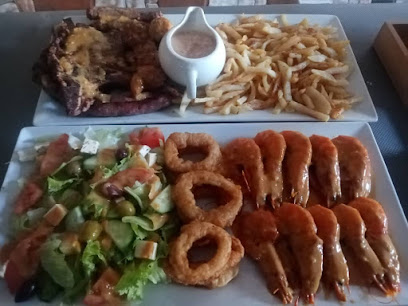
Eefa Beer Haus
Experience the lively atmosphere and local brews at Eefa Beer Haus, a must-visit bar in Ongwediva for an unforgettable night out.

VuVu lounge
Discover the lively ambiance and local flavors at VuVu Lounge in Ongwediva, where every night is a celebration of good company and great drinks.
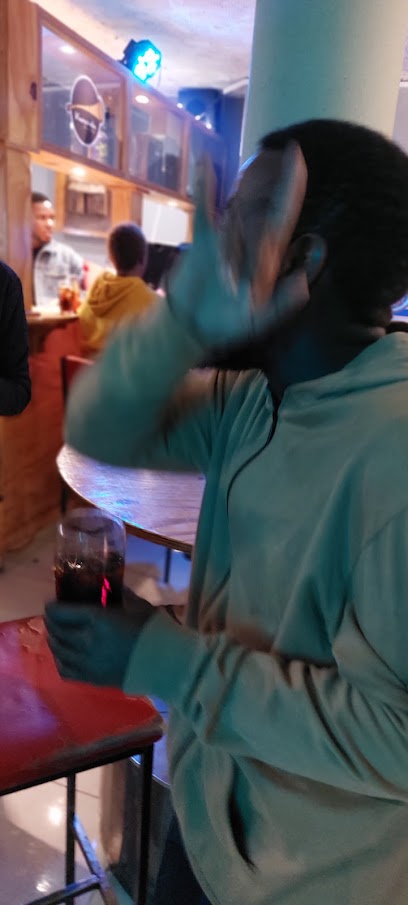
Tabs Pub & Grill
Discover the vibrant atmosphere of Tabs Pub & Grill, a must-visit destination in Ongwediva for delicious food, refreshing drinks, and live entertainment.
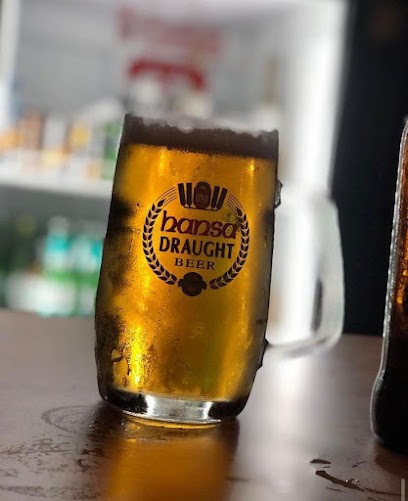
Sir Wine Bar & Restaurant Ongwediva
Experience the vibrant ambiance and diverse cuisine at Sir Wine Bar & Restaurant in Ongwediva, where every visit is a culinary adventure.

KKKK Bar
Experience the vibrant nightlife at KKKK Bar in Ongwediva, where locals and tourists gather for refreshing drinks and a lively atmosphere.
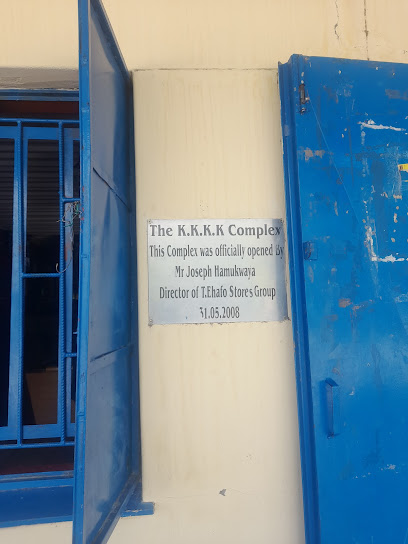
Nikita BarLounge
Discover relaxation at Nikita BarLounge in Ongwediva, featuring a stylish atmosphere and an array of delightful drinks.
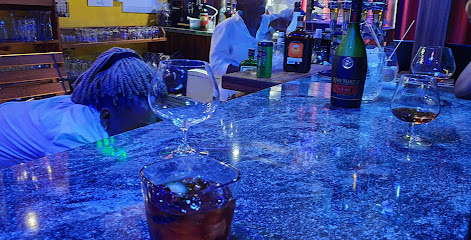
Local Phrases
-
- HelloOshili
[oh-shee-lee] - GoodbyeOka nangwa
[oh-ka nang-wa] - YesEhe
[eh-he] - NoAwe
[ah-we] - Please/You're welcomeOndjila
[on-ji-la] - Thank youOshili
[oh-shee-lee] - Excuse me/SorryOndjila
[on-ji-la] - How are you?Ondi pokela?
[on-dee po-ke-la] - Fine. And you?Epangelo. Oponi?
[e-pan-ge-lo. oh-po-nee] - Do you speak English?Owa ondandika oshili?
[oh-wa on-dan-di-ka oh-shee-lee] - I don't understandAwa ndi kala
[ah-wa on-dee ka-la]
- HelloOshili
-
- I'd like to see the menu, pleaseNdapandula okulonga omukanda
[nda-pan-doo-la oh-koo-lon-ga oh-mu-kan-da] - I don't eat meatAwa ndi longa omahangu
[ah-wa on-dee lon-ga oh-ma-han-gu] - Cheers!Omatunda
[oh-ma-toon-da] - I would like to pay, pleaseNdapandula okulandula
[nda-pan-doo-la oh-koo-lan-doo-la]
- I'd like to see the menu, pleaseNdapandula okulonga omukanda
-
- Help!Ondjila
[on-ji-la] - Go away!Oka nangwa!
[oh-ka nang-wa] - Call the Police!Ondjila omalwa!
[on-ji-la oh-mal-wa] - Call a doctor!Ondjila okwakukala!
[on-ji-la oh-kwa-ku-ka-la] - I'm lostNda lalo
[nda la-lo] - I'm illNda lalo
[nda la-lo]
- Help!Ondjila
-
- I'd like to buy...Ndapandula okukola...
[nda-pan-doo-la oh-koo-ko-la...] - I'm just lookingNda tala
[nda ta-la] - How much is it?Oshi shi?
[oh-shee shee] - That's too expensiveOwa kala oko kala
[oh-wa ka-la oh-ko ka-la] - Can you lower the price?Owa pandula oshike
[oh-wa pan-doo-la oh-shee-ke]
- I'd like to buy...Ndapandula okukola...
-
- What time is it?Oshi oshi?
[oh-shee oh-shee] - It's one o'clockOshi wamwe
[oh-shee wam-we] - Half past (10)Oshi ndongodhi
[oh-shee non-go-di] - MorningOmalwa
[oh-mal-wa] - AfternoonOndi lala
[on-dee la-la] - EveningOndi lala
[on-dee la-la] - YesterdayOndi lala
[on-dee la-la] - TodayOndi lala
[on-dee la-la] - TomorrowOndi lala
[on-dee la-la] - 1Ondi lala
[on-dee la-la] - 2Ondi lala
[on-dee la-la] - 3Ondi lala
[on-dee la-la] - 4Ondi lala
[on-dee la-la] - 5Ondi lala
[on-dee la-la] - 6Ondi lala
[on-dee la-la] - 7Ondi lala
[on-dee la-la] - 8Ondi lala
[on-dee la-la] - 9Ondi lala
[on-dee la-la] - 10Ondi lala
[on-dee la-la]
- What time is it?Oshi oshi?
-
- Where's a/the...?Nawa
[na-wa] - What's the address?Oka ehi
[oh-ka e-he] - Can you show me (on the map)?Owa penduka ndi
[oh-wa pen-du-ka on-dee] - When's the next (bus)?Nawa oshi
[na-wa oh-shee] - A ticket (to ....)Oshika (ko ....)
[oh-shee-ka (ko ....)]
- Where's a/the...?Nawa
History of Ongwediva
-
Ongwediva is situated in the northern part of Namibia, within the Oshana Region. The area has been historically inhabited by the Ovambo people, who are known for their rich cultural heritage and traditions. Archaeological findings suggest that the Ovambo have lived in this region for centuries, thriving on agriculture and cattle herding. Their complex social structures and oral traditions have significantly influenced the cultural tapestry of Ongwediva.
-
During the late 19th century, Namibia became a German colony known as German South-West Africa. Though Ongwediva was not a major center during the colonial period, the influence of German administrative control reached the area. The imposition of new laws and economic practices disrupted traditional ways of life, leading to periods of resistance and adaptation among the local Ovambo population.
-
Following World War I, Namibia came under South African administration as a League of Nations mandate. This period saw the implementation of apartheid policies, which affected Ongwediva and its inhabitants. The establishment of 'homelands' and segregationist policies disrupted local communities and economies. Despite these challenges, Ongwediva became a focal point for resistance and the struggle for independence.
-
In 1971, the Ongwediva Training College was established, marking a significant milestone in the town's development. The college became an important institution for the training of teachers and other professionals, contributing to the educational advancement of the region. It symbolized hope and progress amidst the oppressive apartheid regime.
-
Namibia gained independence in 1990, a watershed moment that greatly influenced the trajectory of Ongwediva. Post-independence, the town has seen rapid development in infrastructure, education, and commerce. Ongwediva is now recognized for its annual trade fair, which attracts businesses and tourists from across the globe, showcasing the town's growth and potential.
-
Ongwediva is a vibrant cultural hub, known for its traditional festivals and ceremonies. Events such as the Efundula, a significant coming-of-age ceremony for young women, and the Olufuko Festival, which celebrates cultural heritage, attract many visitors. These festivities provide a glimpse into the rich traditions and communal life of the Ovambo people.
-
The Ongwediva Annual Trade Fair (OATF) is one of the most significant events in the town's calendar. Established in 2000, the trade fair has grown to become a premier event that promotes economic development and international trade. It features exhibitions from local and international businesses, showcasing a variety of products and services. The OATF has cemented Ongwediva's status as a key economic player in the region.
Ongwediva Essentials
-
Ongwediva is located in the Oshana Region in northern Namibia. The nearest international airport is Hosea Kutako International Airport in Windhoek, approximately 700 kilometers away. From Windhoek, you can take a domestic flight to Ondangwa Airport, which is about a 30-minute drive from Ongwediva. Alternatively, you can travel by road; the journey typically takes around 7 to 8 hours by car or bus along the B1 highway.
-
Once in Ongwediva, transportation options include taxis and car rentals. Taxis are the most common and affordable means of transport within the town. Car rentals are available for those who prefer to drive themselves and explore the surrounding areas at their own pace. Public buses are also available, connecting Ongwediva to neighboring towns such as Oshakati and Ondangwa.
-
The official currency in Namibia is the Namibian Dollar (NAD), which is pegged to the South African Rand (ZAR). Credit cards are widely accepted in hotels, restaurants, and major shops in Ongwediva. However, it is advisable to carry some cash for transactions in smaller establishments and local markets. ATMs are available in the town, but it's wise to withdraw sufficient cash in advance, especially if you plan to travel to more rural areas.
-
Ongwediva is generally a safe destination for tourists, but standard precautions should be taken. Avoid walking alone at night and keep an eye on your belongings in crowded places. While Ongwediva does not have specific high-crime areas targeting tourists, it is always best to stay vigilant and aware of your surroundings. Stick to well-lit and populated areas, especially after dark.
-
In case of an emergency, dial 10111 for police assistance and 10177 for medical emergencies. Ongwediva has a local police station and medical facilities, including the Ongwediva Medipark which offers a range of healthcare services. It is recommended to have travel insurance that covers medical emergencies. Pharmacies are available in the town for over-the-counter medications and minor health issues.
-
Fashion: Do dress modestly, especially when visiting cultural or religious sites. Avoid wearing overly revealing clothing. Religion: Do respect local customs and traditions. Remove your shoes when entering someone's home if required. Public Transport: Do be respectful and courteous on public transport. Give up your seat to elderly passengers if needed. Greetings: Do greet people with a friendly handshake and a smile. Using the local greeting 'Wa lala po' is appreciated. Eating & Drinking: Do try local delicacies and accept food offerings graciously. Don't refuse hospitality, as it is considered impolite.
-
To experience Ongwediva like a local, visit the Ongwediva Annual Trade Fair, held every August, where you can find local crafts, food, and cultural performances. Engage with locals at the town's markets and eateries; they are often friendly and willing to share insights about the region's culture and history. Don't miss visiting the nearby Etosha National Park for a unique wildlife experience. Additionally, exploring the local museums and cultural centers can provide a deeper understanding of the area's heritage.
Trending Landmark in Ongwediva
Nearby Cities to Ongwediva
-
Things To Do in Oshakati
-
Things To Do in Etosha Village
-
Things To Do in Outjo
-
Things To Do in Tsumeb
-
Things To Do in Otjiwarongo
-
Things To Do in Omaruru
-
Things To Do in Rundu
-
Things To Do in Karibib
-
Things To Do in Usakos
-
Things To Do in Okahandja
-
Things To Do in Windhoek
-
Things To Do in Swakopmund
-
Things To Do in Walvis Bay
-
Things To Do in Mariental
-
Things To Do in Maun







